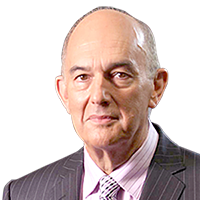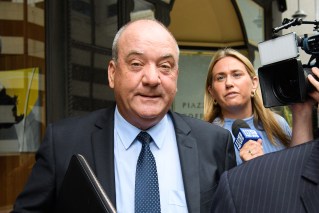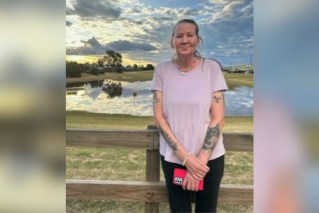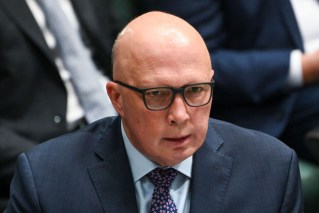Paul Bongiorno: Both sides nervous, but the Liberals can’t bet their house on result

Not since the 2007 election has the Reserve Bank of Australia had the acid test put on it for its independence, and the financial markets are betting there is a 100 per cent chance it will raise official interest rates at its board meeting today.
Fourteen years ago, RBA governor Glenn Stevens infuriated an embattled prime minister John Howard by raising rates two-and-a-half weeks out from polling day.
Then, as now, the opinion polls had the government on track for a defeat, and the decision was widely seen as the last nail in its coffin.
Some Liberals console themselves by reminding us that unlike Howard, Scott Morrison has not bravely claimed that “under the Liberals, interest rates will always be lower”.
True, but neither had Howard in that election. It was his selling point in the 2004 poll.
But the more pertinent point is John Howard’s claim stuck in voters’ memories because it was a piece of the Coalition’s default claim to better economic management than Labor.

Scott Morrison has the interest rates legacy of John Howard’s claims looming large.
Scott Morrison has certainly not been shy beating that drum despite ample evidence to the contrary on the Liberals’ watch, particularly over the past three years when Australia has seen record debt and deficits. And like the Howard government, higher tax collection as a percentage of the economy than recent Labor governments.
It has also presided over historic wage stagnation and a record housing price boom that, according to the Australian Prudential Regulation Authority, of the million new home loans in the past two years almost 300,000 Australians have borrowed six or more times their annual income or have loan-to-value ratios of more than 90 per cent.
These borrowers are now vulnerable to extreme mortgage stress.
Their situation is in no small way due to band-aid home ownership policies and APRA concessional borrowing waivers encouraging them to get in over their heads as if there were no tomorrow.
That and the opportunistic defeat at the past two elections of Labor’s reforms to negative gearing and capital gains tax.
Though these reforms were grandfathered to only affect future investors, Scott Morrison was able to scare enough voters into thinking if they voted Labor they would be instantly poorer.
Now thousands face that very prospect, which in no small way is because both the Reserve Bank and the government continued to pump billions into the economy, fuelling demand at a time of severe supply restraints.
This is where the collision of the COVID-19 pandemic and the Russian invasion of Ukraine has been ignored because of the more urgent need to buy an election.
The imported pressures on the cost of living have undeniably been made worse by the government and its agencies.
But if you can believe Scott Morrison, a big ask I know, if the RBA does begin its inevitable cycle of rate rises this month it has nothing to do with him or the government’s electoral standing.
This most politically calculating of prime ministers chided journalists on Monday for seeing “things through a totally political lens”.
“I don’t,” he claimed. “What happens tomorrow (Tuesday) deals with what people pay on their mortgages.”
It’s hard to see this “don’t blame me” or “it’s not my fault” working, especially as Morrison is so quick to claim all the credit for record-low unemployment and anything that goes right.
The irony is the Prime Minister asserts his opponents have no plan to deal with the economy, whereas at the very least it is the same as his: Keep spending in the hope it will lead to economic growth, except in Labor’s case much more of that spending will go to human services.

Shadow treasurer Dr Jim Chalmers will not let the government off the hook. Photo: AAP
Shadow treasurer Jim Chalmers will not let the government off the hook even if the RBA stalls its rates rise till after the election.
Chalmers says the workers “deserve better than another three years of being absolutely punished by skyrocketing inflation, falling real wages and now interest rate rises as well”.
The latest batch of opinion polls suggests a majority of voters have already made up their minds “to give Albo a go” – the average poll lead looks entrenched around 6 per cent.
And had there not been a shock result in 2019 the discussion now would not be if Labor would win, but by how much.
Former senior Liberal Christopher Pyne says Labor may be in the box seat right now but “three weeks is a long time in politics, especially in an election”.
An interest rate rise three weeks out would make that time fly. Just ask John Howard.
Paul Bongiorno AM is a veteran of the Canberra Press Gallery, with 40 years’ experience covering Australian politics








